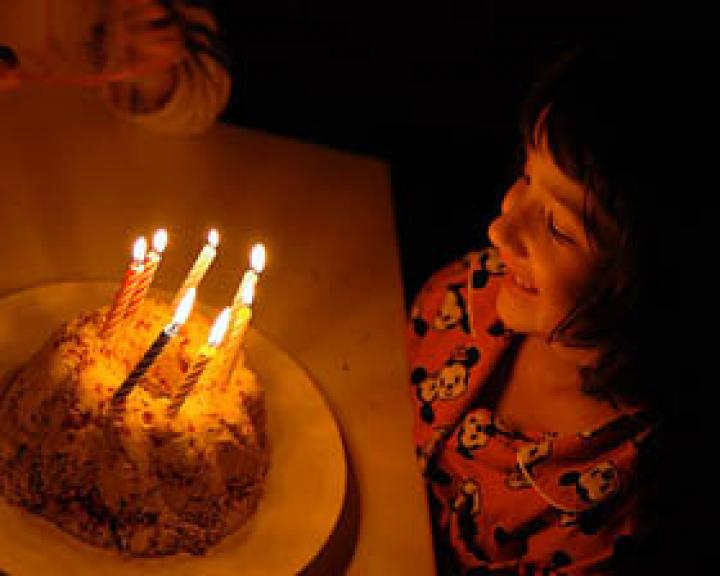Share
By Richard Cohen, PhD - Chief of Mental Health Services, YAI Network Center for Specialty Therapy
For the last 10 years, Jann Tobias’s family has celebrated New Year’s Eve with a family dinner. With careful attention to detail, she uses her aunt’s tablecloth and her grandmother’s china, making a beautiful presentation of her family’s favorite foods. Jann’s husband, Bob, carves the roast beef with his father’s knife.

Over dinner, they tell stories of the relatives whose recipes comprise the meal. Home movies, that her daughters had hurriedly helped their father splice together earlier that day, follow. The night’s festivities conclude with Jann’s son, who has autism, conducting an appropriately embarrassing and humorous “Ode To The Last Year” sing-along that the family makes up.
Learning about Jann’s family rituals, I was struck by how the celebration featured the best of each member of her family. When I shared this with Jann, she laughed but remarked that those unique customs are the true glue of her family.
For families with a child on the autism spectrum, traditions and family rituals are frequently dropped because of the uncertainty of their child’s behavior. Many families have told me that they would rather play it safe than risk the disruption.
However, developing and finessing family rituals can be a wonderful way to recognize transitions and milestones – the birth of a child, transition between schools, and other events – while providing a sense of security during times of change and uncertainty.
Through stability, familiarity, and repetition – techniques professionals use to engage children on the spectrum – these rituals become safe and predictable. Whether a boisterous graduation ceremony or the hushed recital of funeral mass, rituals can ease celebratory or challenging transitions.
While traditions can have a positive impact on the health and well-being of families of children with autism and other developmental disabilities, the key is to adapt them to your family’s needs and be flexible. Families with children on the autism spectrum are still able to cherish the rituals passed down and, when necessary, modify them without losing the meaning. And if a child is unable to participate – due to behavioral or health challenges – new rituals can be developed to fortify the family life.
Ask yourself, “What’s important to how I define my family? What have I lost and how can I restore it? What’s missing from his family traditions?”

Ivy and Craig’s decision to have a bar mitzvah for their son Sam, who is on the spectrum, was made with equal parts heartfelt conviction and uncertainty. The traditional Jewish ceremony marks the coming of age as a 13-year-old boy enters adulthood. After speaking to their Rabbi, the couple found a teacher willing to work with Sam and modify the service. Sam loves music, so they used song to help him learn his Torah passages.
But still, Ivy and Craig had their doubts. How would their son, who has significant behavioral and language challenges, get through the ceremony?
Because Sam loves parties, Ivy repeatedly emphasized that there would be a big celebration with music after the ceremony. Ivy thought this encouraged Sam to practice with her. At the same time, Ivy and Craig prepared themselves for the possibility that Sam could wake up in a bad way on his special day, and not be able to go through with the ceremony.
To minimize distraction, Sam was surrounded by only his family and a few close friends at the temple. Ivy was thrilled that Sam was able to chant his passages from the Torah. As the service concluded, the Rabbi asked Sam if he was proud of himself. Sam, who does not usually answer questions directly, responded with a gleeful, “Yes!” – a moment that no one in the family will ever forget.
This truly was a cause for celebration. A big party followed with many guests, food, music, and dancing and Sam had a great time. It was deeply moving for Ivy and Craig, and it reinforced their decision share such an important family ritual with their community.
Jennifer’s children would always go out to dinner the night before starting sleep away camp. “They always got to choose whatever they wanted for dinner,” she recalled. “It was just how we did it.”
That’s what makes family rituals so important: they develop meaning over time. “It’s a time for all of us to just be with each other during the chaos of preparing to leave for camp,” Jennifer said. “It seems to lower our anxiety about leaving. We did this before and we are going to do this again, and we get to have a fun farewell even if we are anxious.”
When these family activities are celebrated and looked forward to, they begin taking on special significance and become family lore. Once they take on meaning, that’s when they become a cherished family ritual.
